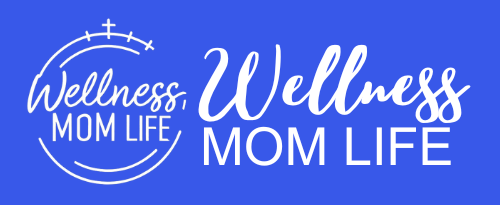Bringing a new life into the world is a profound experience, but it also marks the beginning of a challenging period known as the postpartum period. This period, which typically lasts six weeks to several months after childbirth, is characterized by significant physical and emotional changes for new parents. In this blog post, we’ll provide guidance for navigating the postpartum period, offering support and advice for new parents as they adjust to life with their newborn.
The Postpartum Period
The postpartum period, often referred to as the “fourth trimester,” encompasses the time following childbirth when a woman’s body undergoes physical and hormonal changes as it recovers from pregnancy and childbirth. While the duration of the postpartum period can vary from person to person, it generally lasts for six weeks to several months.
During this time, new parents may experience a range of physical changes, including vaginal bleeding (lochia), breast engorgement, soreness, and fatigue. Additionally, emotional changes such as mood swings, anxiety, and feelings of overwhelm are common as parents adjust to their new roles and responsibilities.
Physical Recovery and Self-Care
Physical recovery is an essential aspect of the postpartum period, and self-care plays a crucial role in supporting this process. Rest and sleep are paramount during this time, as the body requires ample time to heal from childbirth and adjust to the demands of caring for a newborn. New parents should prioritize sleep whenever possible, taking naps during the day and sharing nighttime feeding and caregiving responsibilities with their partner.
Nutrition and hydration are also vital for supporting physical recovery and energy levels during the postpartum period. Eating a balanced diet rich in fruits, vegetables, lean proteins, and whole grains can provide essential nutrients for healing and breastfeeding. Staying hydrated by drinking plenty of water throughout the day is equally important, especially for nursing mothers.
Incorporating gentle exercise and movement into daily routines can help promote physical well-being and aid in postpartum recovery. Activities such as walking, gentle stretching, and pelvic floor exercises can help strengthen muscles, improve circulation, and alleviate discomfort following childbirth. It’s essential to listen to your body and gradually increase the intensity and duration of exercise as you regain strength and stamina.
Emotional Well-being
The postpartum period is not only a time of physical recovery but also one of significant emotional adjustment. It’s common for new parents to experience a range of emotions, from joy and excitement to anxiety and sadness. While some mood swings and emotional fluctuations are normal during this time, it’s essential to monitor your mental health and seek support if you’re struggling.
Distinguishing between the “baby blues” and postpartum depression (PPD) is crucial. The baby blues typically involve mild mood swings, tearfulness, and feelings of overwhelm in the first few weeks after childbirth. These symptoms usually resolve on their own within a few weeks and don’t interfere significantly with daily functioning.
On the other hand, postpartum depression is a more serious condition characterized by persistent feelings of sadness, hopelessness, and despair that can interfere with a parent’s ability to care for themselves and their baby. If you’re experiencing symptoms of postpartum depression, such as persistent sadness, loss of interest in activities, changes in appetite or sleep patterns, or thoughts of harming yourself or your baby, it’s essential to seek help from a healthcare provider as soon as possible.
Seeking support from loved ones and professionals is crucial for maintaining emotional well-being during the postpartum period. Don’t hesitate to reach out to friends, family members, or support groups for emotional support and encouragement. Additionally, consider seeking counseling or therapy from a mental health professional who specializes in perinatal mental health to help you navigate the challenges of new parenthood.
Practicing self-compassion and mindfulness can also help support emotional well-being during the postpartum period. Be gentle with yourself and acknowledge the challenges you’re facing as a new parent. Take time for self-care activities that nurture your mind, body, and soul, whether it’s taking a warm bath, practicing deep breathing exercises, or spending time in nature.
Navigating Relationships
The postpartum period can place strain on relationships as new parents adjust to their roles and responsibilities. Partner support is essential during this time, as both parents navigate the challenges of caring for a newborn while also managing their own needs and emotions. Communicate openly and honestly with your partner about your feelings, concerns, and needs, and work together as a team to support each other through the postpartum journey.
Family and friend support can also be invaluable during the postpartum period. Don’t hesitate to reach out to loved ones for help with household tasks, childcare, or emotional support. Having a strong support network can provide reassurance and encouragement during times of uncertainty and overwhelm.
Setting boundaries and communicating effectively with loved ones is crucial for maintaining healthy relationships during the postpartum period. Be clear about your needs and limitations, and don’t be afraid to say no to requests or invitations that feel overwhelming or stressful. Prioritize your own well-being and the needs of your immediate family as you navigate the complexities of new parenthood.
Bonding with Your Baby
Building a strong bond with your baby is a vital aspect of the postpartum period. Skin-to-skin contact, also known as kangaroo care, is an excellent way to promote bonding and support your baby’s development. Holding your baby against your bare chest can help regulate their body temperature, heart rate, and breathing, while also promoting feelings of closeness and security.
Whether you’re breastfeeding or bottle-feeding, feeding time provides an excellent opportunity for bonding with your baby. Make eye contact, talk or sing to your baby, and savor these intimate moments together. Bonding isn’t limited to feeding time—spending quality time with your baby through cuddling, playing, and engaging in activities that stimulate their senses can also strengthen your bond.
Breastfeeding is not only a way to nourish your baby but also a powerful bonding experience for many mothers. If you choose to breastfeed, seek support from lactation consultants, support groups, or breastfeeding buddies to help you overcome challenges and establish a successful breastfeeding relationship with your baby. Remember that fed is best, and whether you breastfeed, formula-feed, or use a combination of both, what matters most is that your baby is healthy, happy, and thriving.
Managing Practical Challenges
The postpartum period comes with its share of practical challenges, from sleep deprivation to time management and household responsibilities. Sleep deprivation is a common experience for new parents, but prioritizing rest whenever possible can help mitigate its effects. Take naps during the day when your baby sleeps, and consider enlisting the help of loved ones to share nighttime caregiving duties so that you can get the rest you need.
Managing time effectively is essential for juggling the demands of caring for a newborn and attending to your own needs. Create a flexible schedule or routine that allows for breaks, self-care activities, and time with your baby. Prioritize essential tasks and delegate or postpone less urgent ones as needed to avoid feeling overwhelmed by your to-do list.
Household responsibilities can often take a backseat during the postpartum period, and that’s okay. Focus on the essentials, such as keeping the home clean and safe for your baby, and don’t hesitate to ask for help from friends, family members, or hired help if needed. Remember that it’s okay to let go of perfectionism and prioritize your own well-being and the needs of your baby during this time.
Conclusion
The postpartum period is a transformative time filled with joy, challenges, and adjustments as new parents welcome their bundle of joy into the world. While navigating this journey can be overwhelming at times, it’s essential to remember that you’re not alone. Seek support from loved ones, healthcare professionals, and online communities to help you navigate the ups and downs of new parenthood.
In summary, the postpartum period involves physical recovery, emotional adjustment, and learning to care for your newborn. Prioritize self-care, seek support for emotional well-being, and communicate openly with your partner and loved ones about your needs and concerns. Bond with your baby through skin-to-skin contact, feeding, and quality time together, and don’t hesitate to ask for help with practical challenges such as sleep deprivation and household responsibilities.
Remember that every parent’s journey through the postpartum period is unique, and it’s okay to ask for help when you need it. Trust your instincts, be patient with yourself and your baby, and celebrate the milestones and moments of joy along the way.
For further assistance and support during the postpartum period, consider reaching out to:
- Your healthcare provider for guidance on physical recovery and emotional well-being
- Lactation consultants or breastfeeding support groups for assistance with breastfeeding
- Parenting classes or support groups for connection and advice from other new parents
- Mental health professionals specializing in perinatal mental health for support with postpartum depression or anxiety
Remember, you’re doing an incredible job, and with time, patience, and support, you’ll navigate the postpartum period with grace and confidence. Congratulations on the arrival of your little one, and welcome to the beautiful journey of parenthood.









